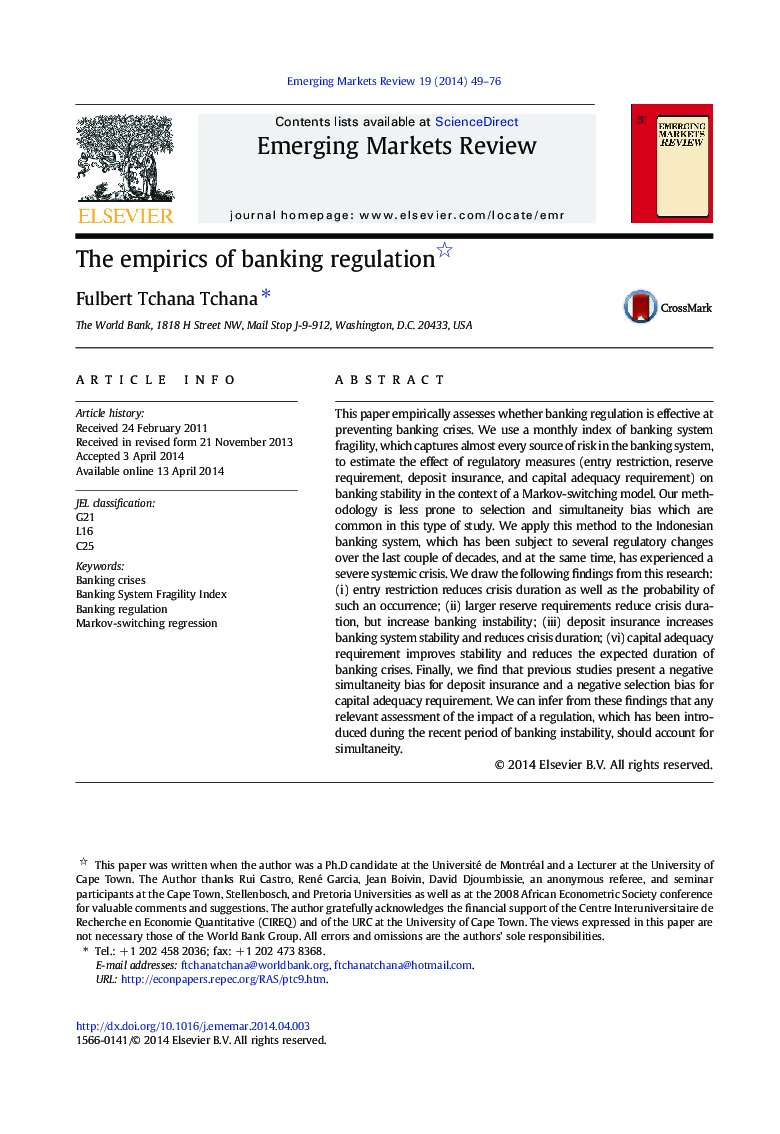| کد مقاله | کد نشریه | سال انتشار | مقاله انگلیسی | نسخه تمام متن |
|---|---|---|---|---|
| 5063206 | 1476679 | 2014 | 28 صفحه PDF | دانلود رایگان |
عنوان انگلیسی مقاله ISI
The empirics of banking regulation
ترجمه فارسی عنوان
تجارب مقررات بانکی
دانلود مقاله + سفارش ترجمه
دانلود مقاله ISI انگلیسی
رایگان برای ایرانیان
موضوعات مرتبط
علوم انسانی و اجتماعی
مدیریت، کسب و کار و حسابداری
کسب و کار و مدیریت بین المللی
چکیده انگلیسی
This paper empirically assesses whether banking regulation is effective at preventing banking crises. We use a monthly index of banking system fragility, which captures almost every source of risk in the banking system, to estimate the effect of regulatory measures (entry restriction, reserve requirement, deposit insurance, and capital adequacy requirement) on banking stability in the context of a Markov-switching model. Our methodology is less prone to selection and simultaneity bias which are common in this type of study. We apply this method to the Indonesian banking system, which has been subject to several regulatory changes over the last couple of decades, and at the same time, has experienced a severe systemic crisis. We draw the following findings from this research: (i) entry restriction reduces crisis duration as well as the probability of such an occurrence; (ii) larger reserve requirements reduce crisis duration, but increase banking instability; (iii) deposit insurance increases banking system stability and reduces crisis duration; (vi) capital adequacy requirement improves stability and reduces the expected duration of banking crises. Finally, we find that previous studies present a negative simultaneity bias for deposit insurance and a negative selection bias for capital adequacy requirement. We can infer from these findings that any relevant assessment of the impact of a regulation, which has been introduced during the recent period of banking instability, should account for simultaneity.
ناشر
Database: Elsevier - ScienceDirect (ساینس دایرکت)
Journal: Emerging Markets Review - Volume 19, June 2014, Pages 49-76
Journal: Emerging Markets Review - Volume 19, June 2014, Pages 49-76
نویسندگان
Fulbert Tchana Tchana,
